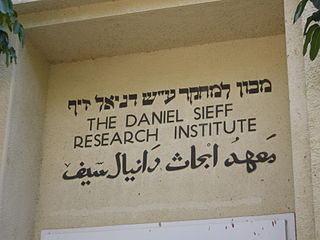Related Research Articles
Popular science is an interpretation of science intended for a general audience. While science journalism focuses on recent scientific developments, popular science is more broad-ranging. It may be written by professional science journalists or by scientists themselves. It is presented in many forms, including books, film and television documentaries, magazine articles, and web pages.
The year 1916 involved a number of significant events in science and technology, some of which are listed below.
The year 1917 in science and technology involved some significant events, listed below.
The year 1920 in science and technology involved some significant events, listed below.

The Weizmann Institute of Science is a public research university in Rehovot, Israel, established in 1934, 14 years before the State of Israel. It differs from other Israeli universities in that it offers only graduate and postgraduate degrees in the natural and exact sciences.
The year 1927 in science and technology involved some significant events, listed below.

The Rutherford Medal is the most prestigious award offered by the Royal Society of New Zealand, consisting of a medal and prize of $100,000. It is awarded at the request of the New Zealand Government to recognize exceptional contributions to the advancement and promotion of public awareness, knowledge and understanding in addition to eminent research or technological practice by a person or group in any field of science, mathematics, social science, or technology. It is funded by the New Zealand government and awarded annually.
The MacArthur Fellows Program, MacArthur Fellowship, commonly but unofficially known as a "Genius Grant", is a prize awarded annually by the John D. and Catherine T. MacArthur Foundation typically to between 20 and 30 individuals, working in any field, who have shown "extraordinary originality and dedication in their creative pursuits and a marked capacity for self-direction" and are citizens or residents of the United States.
The Asahi Prize, established in 1929, is an award presented by the Japanese newspaper Asahi Shimbun and Asahi Shimbun Foundation to honor individuals and groups that have made outstanding accomplishments in the fields of arts and academics and have greatly contributed to the development and progress of Japanese culture and society at large.
The 1851 Research Fellowship is a scheme conducted by the Royal Commission for the Exhibition of 1851 to annually award a three-year research scholarship to approximately eight "young scientists or engineers of exceptional promise". The fellowship is open to all nationalities and fields of science, including physical or biological sciences, mathematics, applied science, and any branch of engineering. The fellowship can be held anywhere in the United Kingdom.

The Otto Hahn Medal is awarded by the Max Planck Society to young scientists and researchers in both the natural and social sciences. The prestigious award takes its name from the German chemist and Nobel Prize laureate Otto Hahn, who served as the first president of the Max Planck Society from 1948 to 1960.

The Canon: A Whirligig Tour of the Beautiful Basics of Science is a book written by American science author Natalie Angier.
References
- ↑ "Fellows of the Royal Society", Royal Society. "Fellowship from 1660 onwards" (xlsx file on Google Docs via the Royal Society) [ dead link ]
- ↑ "John Clegg". Royal Society. Retrieved 14 June 2017.
- ↑ "Fellow details". Royal Society. Retrieved 14 June 2017.
- ↑ "Douglas Fearon". Royal Society. Retrieved 14 June 2017.
- ↑ "Graham Warren". Royal Society. Retrieved 14 June 2017.
- ↑ "Fellow details". Royal Society. Retrieved 14 June 2017.
- ↑ "Fellow details". Royal Society. Retrieved 14 June 2017.
- ↑ "John Toland". Royal Society. Retrieved 14 June 2017.
- ↑ "Graham Warren". Royal Society. Retrieved 14 June 2017.
- ↑ "Dennis Weaire". Royal Society. Retrieved 14 June 2017.
- ↑ "Robert Williamson". Royal Society. Retrieved 14 June 2017.
- ↑ "Robert Huber". Royal Society. Retrieved 14 June 2017.
- ↑ "Marc Kirschner". Royal Society. Retrieved 14 June 2017.
- ↑ "Fellow details". Royal Society. Retrieved 14 June 2017.
- ↑ "Gilbert Stork". Royal Society. Retrieved 14 June 2017.
- ↑ "Edward Witten". Royal Society. Retrieved 14 June 2017.
- ↑ "Richard Zare". Royal Society. Retrieved 14 June 2017.